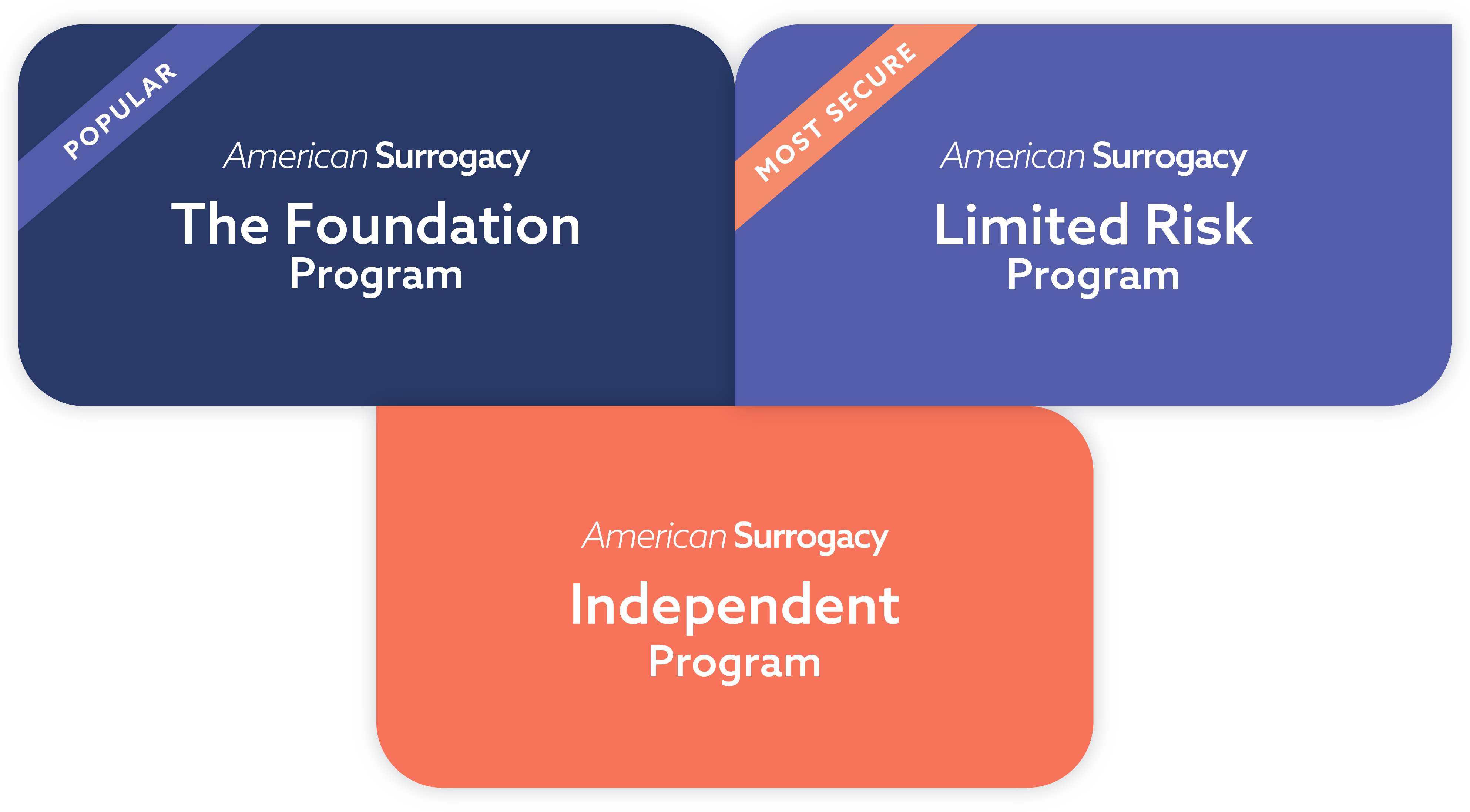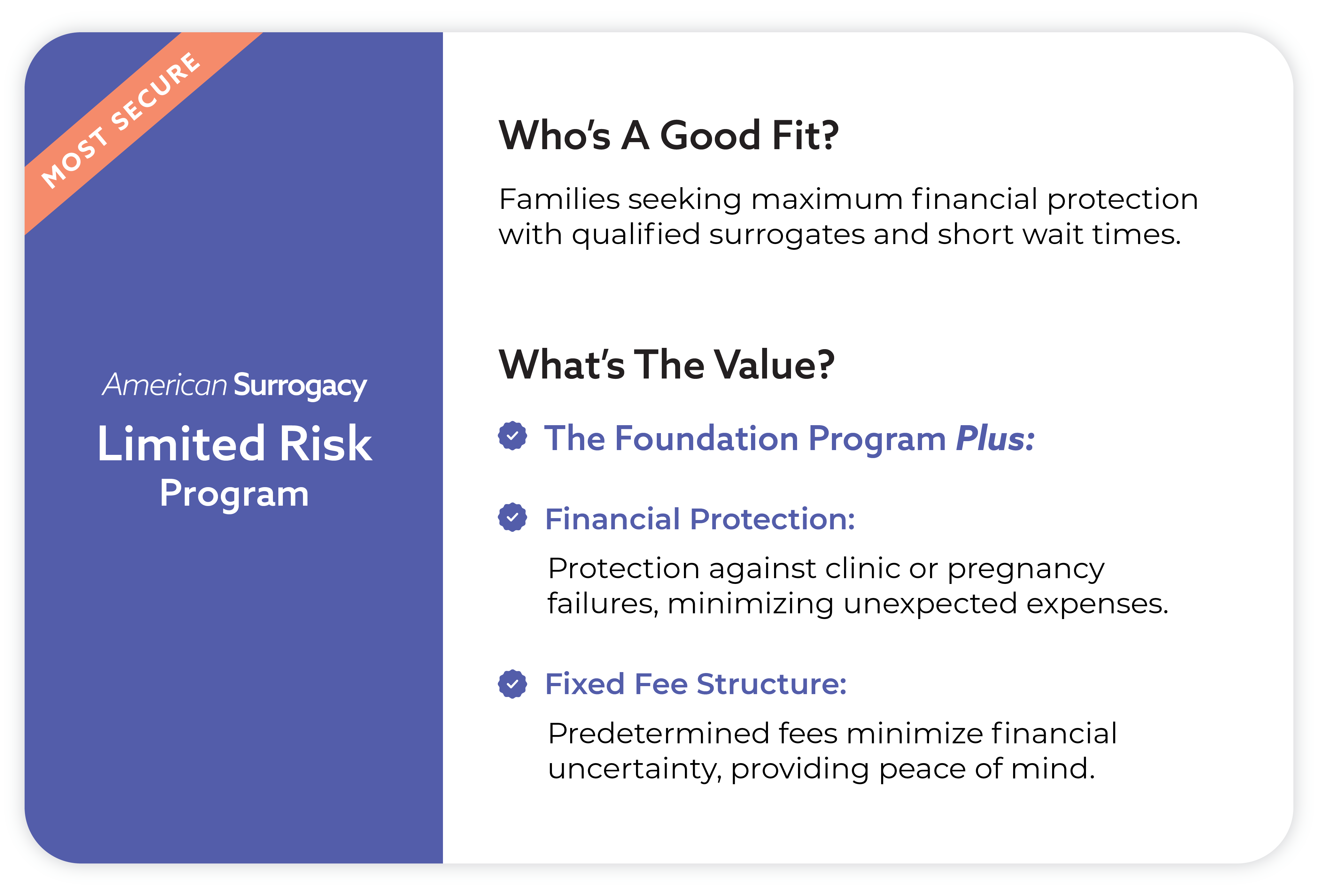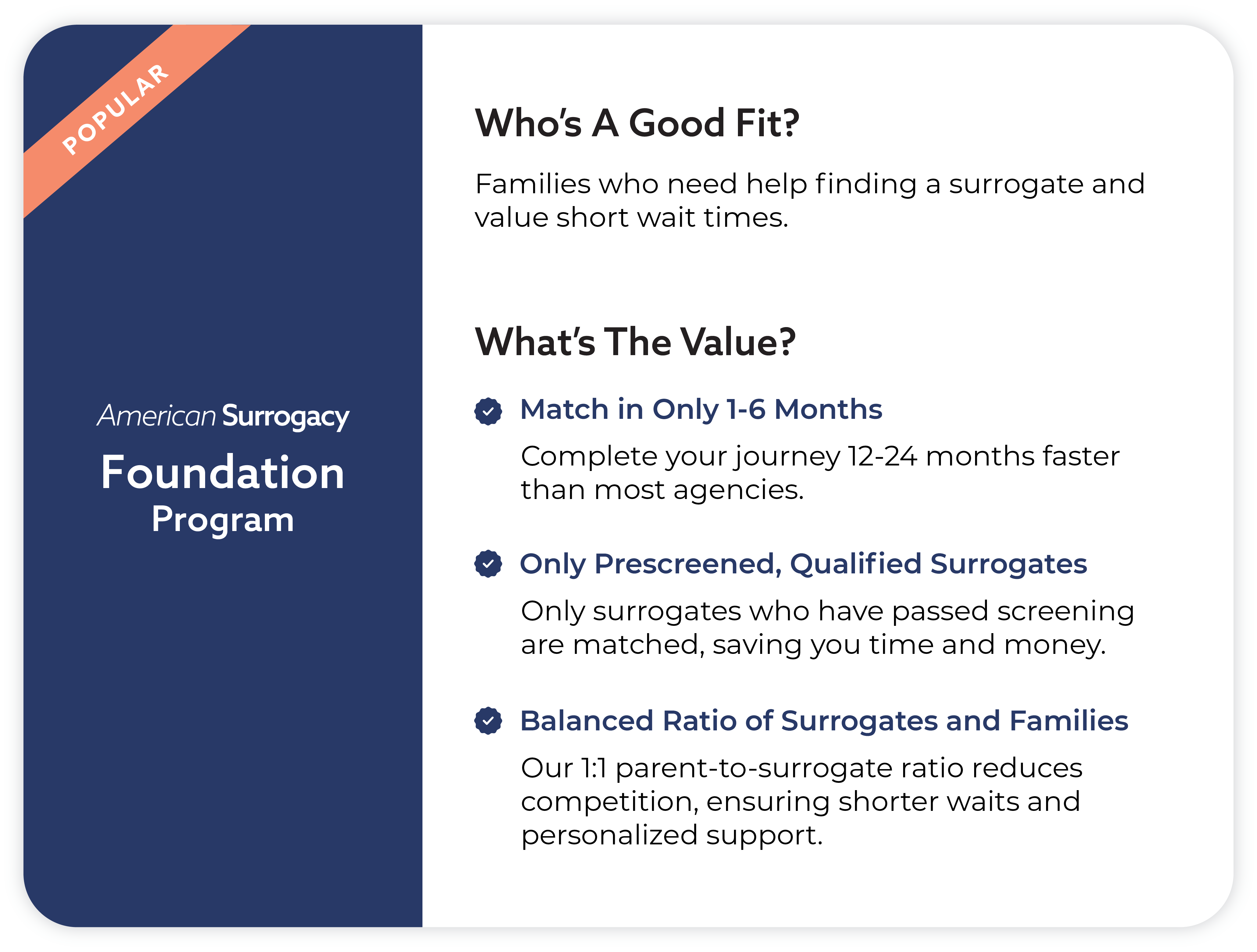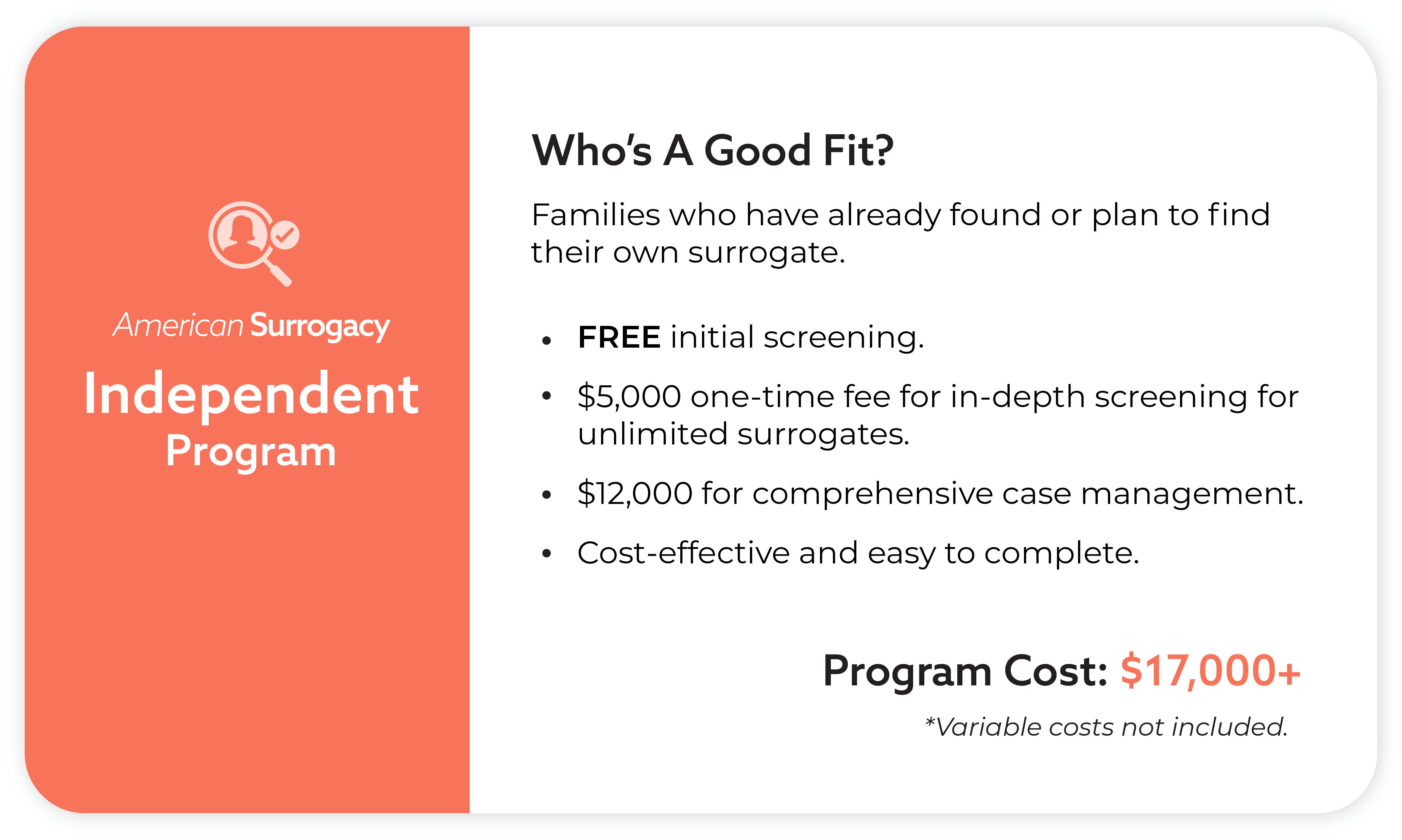You don’t need to be a lawyer to complete surrogacy — but you will need help navigating the legal process.
The good news? Surrogacy law in Georgia does allow for surrogacy arrangements, and American Surrogacy is here to help you find the right help and navigate the process with confidence.
Whether you’re an intended parent or a prospective surrogate, knowing your rights and responsibilities is crucial. When you work with American Surrogacy, you’ll receive expert guidance, legal clarity, and emotional support at every step.
Are there Georgia Surrogacy Laws?
Georgia currently does not have any statutes or case law prohibiting surrogacy. This legal neutrality makes it possible for both gestational and traditional surrogacy arrangements to occur in the state, though gestational surrogacy is more common and usually recommended by professionals.
- There is no Georgia statute that specifically regulates surrogacy.
- Courts in Georgia have a history of recognizing pre-birth orders, which can establish legal parentage before the baby is born.
For up-to-date legal information, you can explore Georgia’s legislative resources: Georgia General Assembly.
Is Paid Surrogacy Legal in Georgia?
Yes — paid (or compensated) gestational surrogacy is permitted in Georgia. This means intended parents can compensate a surrogate for her time, effort, and medical needs.
At American Surrogacy, we match intended parents with screened surrogates in Georgia and across the U.S., so you always have access to the most favorable legal environments.
Learn more about surrogate compensation
Are Surrogacy Contracts Enforceable in Georgia?
Yes. Surrogacy contracts are generally enforceable in Georgia, though the lack of governing statute means outcomes can vary by court and jurisdiction. That’s why it’s essential to work with a qualified surrogacy attorney and a reputable agency that understands Georgia’s unique legal landscape.
Get help drafting a contract in Georgia.
Surrogacy Contract Checklist: What to Include
A well-drafted surrogacy contract in Georgia should cover:
- Financial Terms
Compensation for the surrogate, reimbursements and handling of unexpected costs.
- Medical Procedures
Who makes decisions about embryo transfers, selective reduction, pregnancy termination or cesarean delivery?
- Health and Lifestyle
Wellness expectations, travel restrictions and communication preferences.
- Legal Parentage
How and when the intended parents will be recognized as the child’s legal guardians.
- Dispute Resolution
Clear methods for resolving disagreements—without jeopardizing the journey.
- Termination Clauses
What happens if one party needs to end the agreement early?
- Financial Terms
Compensation for the surrogate, reimbursements and handling of unexpected costs.
- Medical Procedures
Who makes decisions about embryo transfers, selective reduction, pregnancy termination or cesarean delivery?
- Health and Lifestyle
Wellness expectations, travel restrictions and communication preferences.
- Legal Parentage
How and when the intended parents will be recognized as the child’s legal guardians.
- Dispute Resolution
Clear methods for resolving disagreements—without jeopardizing the journey.
- Termination Clauses
What happens if one party needs to end the agreement early?
When Do I Need a Surrogacy Contract in Georgia?
Surrogacy contracts come after you’re matched with a surrogate, but before any medical procedures begin. This timeline ensures that all parties are legally protected before embryo transfer.
How Will American Surrogacy Support Me During the Contract Stage?
At American Surrogacy, we work closely with your attorney to ensure every detail of your surrogacy agreement reflects your values and expectations. We also:
Explaining complex legal language in plain terms Assisting with contract negotiations and feedback loops Coordinating timelines between medical and legal milestones Ensuring all documentation is signed and submitted on time Connecting you with a surrogacy attorney near you How We Help You
LGBTQ+ Surrogacy Laws in Georgia
Georgia law does not restrict surrogacy for LGBTQ+ individuals or couples. However, same-sex intended parents may need to take additional legal steps, such as:
- Securing a pre-birth order naming both parents
- Completing a second-parent adoption post-birth in some cases
Abortion Laws in Georgia & Surrogacy Contract Termination Clauses
Georgia law currently bans most abortions after approximately six weeks, with some exceptions. This could impact your surrogacy contract.
That’s why it’s essential to include clear termination clauses in your agreement. American Surrogacy ensures that your preferences — and your surrogate’s — are aligned and protected.
Georgia’s termination restrictions not a good fit for you? You can still pursue surrogacy in another state with our help.
Surrogacy Laws for Establishing Parentage in Georgia
In Georgia, parentage can be established via a pre-birth order, especially in gestational surrogacy cases. Courts generally recognize these orders regardless of the parents’ marital status or sexual orientation.
How to Get a Pre-Birth Order in Georgia
- Is a hearing required? It varies by county, but many judges issue pre-birth orders administratively.
- How long does it take? Typically within a few weeks after filing.
- Birth certificate timing: Usually issued within 1–2 weeks post-delivery.
International Surrogacy Laws in Georgia
Georgia law does not specifically address international surrogacy. However, international intended parents have successfully completed surrogacy arrangements here, especially when working with a national agency like American Surrogacy.
The Role of a Surrogacy Attorney in Georgia
Your surrogacy attorney will:
- Draft and review the surrogacy contract
- Secure pre-birth or post-birth orders
- Represent your interests in legal proceedings
Need help finding a surrogacy attorney in Georgia? We’ll connect you with a local expert.
How Much Does a Surrogacy Lawyer Cost in Georgia?
Legal fees vary but are typically included in American Surrogacy’s program costs, so you don’t need to budget separately.
- IPs cover both their own and the surrogate’s legal fees.
- Costs are estimated in your agency fee breakdown.
Find a Surrogacy Attorney Near Me – Georgia
Here are a few Georgia-based professionals familiar with surrogacy law:
Lynn Goldman is a partner at Claiborne | Fox | Bradley | Goldman LLC, focusing on adoption and fertility law, including surrogacy and gamete donation. With over 17 years as a child welfare lawyer and mediator, she brings personal experience with infertility to her practice.
Lori Surmay leads The Law Office of Lori M. Surmay, specializing in adoption and assisted reproductive technologies law. With over three decades of experience, she provides comprehensive legal services in family formation.
Amy Wallas Fox is the managing partner of Claiborne | Fox | Bradley | Goldman's Charlotte, NC office and is licensed in both North Carolina and Georgia. She has dedicated her career to adoption and assisted reproductive technologies law.
As a named partner at Claiborne | Fox | Bradley | Goldman LLC, Lila Bradley represents clients in adoption and assisted reproduction matters, committed to helping all individuals build families.
(We’ll help you choose the right one for your journey.)
Explore Our Surrogacy Programs in Georgia

We offer three flexible programs:
Limited Risk Program

Foundation Program

Independent Program

Legal FAQ: Surrogacy in Georgia
Are insurance companies required to cover IVF in Georgia?
No. Georgia does not mandate IVF insurance coverage. However, a 2025 bipartisan bill has codified the right to access IVF statewide, reinforcing protections for intended parents pursuing surrogacy. While this does not guarantee insurance coverage, it provides much-needed legal clarity and assurance.
Is an embryo considered a person in Georgia?
Georgia law does not define embryos as persons, though the state has fetal personhood laws that may impact abortion-related matters.
Is traditional surrogacy legal in Georgia?
Yes, though it carries more legal risk. Most professionals recommend gestational surrogacy.
Do sperm and egg donors have parental rights?
Generally no, especially with signed consent forms. See GA Code § 19-7-21.
Is there an IVF Tax Credit?
Not in Georgia. Some states like CO and MA offer fertility tax credits.
What Is the New Law for Surrogacy in Georgia?
While Georgia has not enacted a law specifically regulating surrogacy, a 2025 legislative update codified the legal right to access in vitro fertilization (IVF) — the medical process most commonly used in gestational surrogacy. This law reinforces the state’s supportive stance toward assisted reproduction and strengthens the legal foundation for surrogacy arrangements involving IVF.
Is Georgia a Surrogacy-Friendly State?
Yes. With no prohibitions, support for pre-birth orders, and a track record of successful arrangements, Georgia is considered surrogacy-friendly — especially with experienced legal counsel and agency support.
What Disqualifies You from Surrogacy?
Common disqualifiers for becoming a surrogate:
- History of pregnancy complications
- Smoking or drug use
- Untreated mental health conditions
- Lack of stable support system
What Are Two Requirements to Qualify as a Surrogate Mother?
- Must have had at least one full-term, uncomplicated pregnancy.
- Must be between 21 and 40 years old, physically and mentally healthy.
You deserve clarity, support, and confidence in your surrogacy journey.
Let American Surrogacy help you start the process in Georgia or match you with a surrogate in a surrogacy-friendly state.
Surrogacy laws in Georgia and other states in the U.S. are always subject to change; therefore, we make no guarantee that this information is currently accurate to Georgia surrogacy laws. This information should not be taken as legal advice, and all those interested in a surrogacy in Georgia should always contact a Georgia surrogacy attorney for the most updated information on the process of surrogacy in this state.